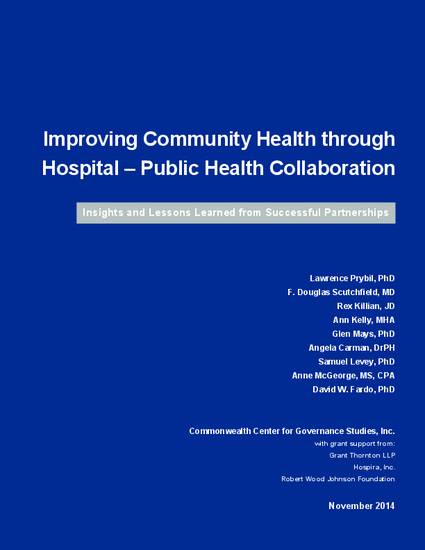
From the introduction:
Health care expenditures in the United States currently consume over 17 percent of the nation’s gross domestic product, a much larger share than other developed nations. Yet, despite this large investment, studies by Commonwealth Fund, the Institute of Medicine, and other organizations show the USA lags behind other developed nations on multiple metrics of population health such as infant mortality and life expectancy. Moreover, there is extensive evidence of disparities in access, cost, and quality of health care services.
Thus, we are confronted by a striking paradox: the USA spends a large and growing proportion of our resources on health care, but the outcomes in terms of access to services, the quality of those services, and the health of our population do not match other countries whose spending per capita is lower. It is evident that many factors contribute to this paradox — demographic, environmental, genetic, lifestyle, and socioeconomic — and all warrant societal attention. Improving access to outpatient and inpatient medical services and the quality of those services, while important, cannot resolve the paradox.
Across the country, there is growing awareness that restraining the increase in health expenditures and improving the health status of families, communities, and society at large will require a broader approach that addresses the full array of factors affecting health status. Greater attention and resources must be devoted to promoting a safer environment, healthy lifestyles, prevention of illnesses and injuries, and early detection and treatment of health problems, as well as dealing with the underlying determinants of health. This approach necessitates integrating basic principles of public health into organizing and delivering health and medical services.
- Community health,
- Hospitals,
- Public health departments,
- Partnerships
Available at: http://works.bepress.com/f_douglas_scutchfield/97/

This study of partnerships including hospitals, public health departments, and other stakeholders focused on improving the health of the communities they jointly serve was funded by grants from Grant Thornton LLP, Hospira, Inc., and the Robert Wood Johnson Foundation.
© Copyright 2014: Commonwealth Center for Governance Studies, Inc., Lexington, Kentucky, 40588-0250. All rights reserved.
This publication cannot be reproduced in any form without written permission.
The Commonwealth Center for Governance Studies, Inc. has granted the permission for posting the report here.
Click here to see the study overview. Click here to see the core characteristics of successful partnerships.